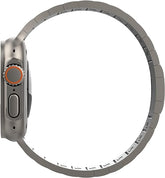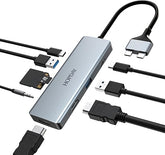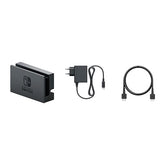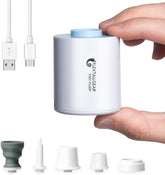22 Emergency Security Tips That Could Save Your Life
22 Emergency Security Tips That Could Save Your Life (Number 11 Is a Must-Know!)
Emergencies strike when we least expect them. Whether it's a natural disaster, a home invasion, or a medical crisis, being prepared can make all the difference. This guide equips you with 22 essential security tips that could save your life in a variety of emergency situations.
1. Develop a Family Emergency Plan
This is the foundation of emergency preparedness. Discuss escape routes, meeting points, and emergency contact information with your family. Practice your plan regularly so everyone knows what to do in case of a fire, break-in, or natural disaster.
2. Assemble an Emergency Kit
Prepare a kit with essential supplies like water, non-perishable food, a first-aid kit, a flashlight, batteries, medications, and important documents. Keep it in an easily accessible location.
3. Know Your Surroundings
Be aware of your surroundings and identify potential hazards in your home and neighborhood. Know the location of fire exits, emergency shelters, and evacuation routes.
4. Secure Your Home

Reinforce your doors and windows, install a home security system, and consider using security cameras. Products like Ring Alarm, SimpliSafe, and Arlo Pro 4 offer comprehensive security solutions.

5. Fire Safety First

Install smoke detectors like the Google Nest Protect on every level of your home and test them regularly. Keep fire extinguishers in easily accessible locations and know how to use them.
6. Earthquake Preparedness
If you live in an earthquake-prone area, secure heavy furniture to prevent it from toppling over, and have a plan for taking cover during an earthquake. Consider earthquake putty or straps to secure valuable items.
7. Flood Safety
If you live in a flood-prone area, know your evacuation routes and have a plan for moving valuables to higher ground. Consider flood insurance to protect your property. A sump pump with a battery backup can be a lifesaver.

8. Severe Weather Awareness
Stay informed about weather forecasts and warnings using a weather alert radio like the Midland WR120. Know how to take shelter during a tornado or severe thunderstorm.

9. First Aid Knowledge
Take a first aid and CPR course to learn basic life-saving skills. Keep a well-stocked first-aid kit readily available.
10. Self-Defense Skills
Consider taking a self-defense course to learn basic techniques for protecting yourself in a dangerous situation. Carry a personal alarm like the SABRE Personal Alarm with Key Ring for added security.

11. Trust Your Instincts (This One's Crucial!)
If you feel uncomfortable or sense danger, don't hesitate to remove yourself from the situation. Trust your gut feeling and take action to protect yourself.
12. Stay Calm and Assess the Situation
In an emergency, try to remain calm and assess the situation before taking action. This will help you make rational decisions and avoid unnecessary risks.
13. Call for Help
Don't hesitate to call 911 or your local emergency number if you need assistance. Provide clear and concise information about your situation and location.
14. Communicate with Your Family
Establish a communication plan with your family in case you are separated during an emergency. Designate a meeting point or use a communication app like Life360 or Zello.

15. Stay Informed
Stay informed about potential hazards in your area and follow the guidance of local authorities during an emergency. Use a reliable weather app like AccuWeather or The Weather Channel.
16. Help Others
If it's safe to do so, offer assistance to others who may need help during an emergency.
17. Be Prepared for Power Outages
Have a backup power source like a generator or portable power station like the Jackery Explorer 500, and keep flashlights and batteries readily available.

18. Secure Your Valuables
Keep important documents, jewelry, and other valuables in a safe or secure location. Consider a fireproof and waterproof safe like the SentrySafe SFW123GDC Fireproof and Waterproof Safe for added protection.
19. Teach Children About Safety
Teach children about basic safety rules, emergency procedures, and how to call for help.
20. Practice, Practice, Practice
Regularly practice your emergency plan and safety procedures with your family to ensure everyone is prepared.
21. Stay Connected
Keep your phone charged and have a backup communication plan in case cellular networks are down. Consider a satellite communication device like the Garmin inReach Mini 2 for remote areas.

22. Be Aware of Scams
After an emergency, be wary of scams and fraudulent activity. Only donate to reputable organizations and be cautious of unsolicited offers for assistance.
Being prepared can make all the difference in an emergency. Take these security tips to heart, develop a comprehensive plan, and empower yourself and your loved ones to stay safe in any situation.

































![["B0B1L87TMY"]](http://smarttechshopping.com/cdn/shop/products/7110BNil-dL._AC_SL1500_165x.jpg?v=1695449139)







Leave a comment
Please note, comments need to be approved before they are published.